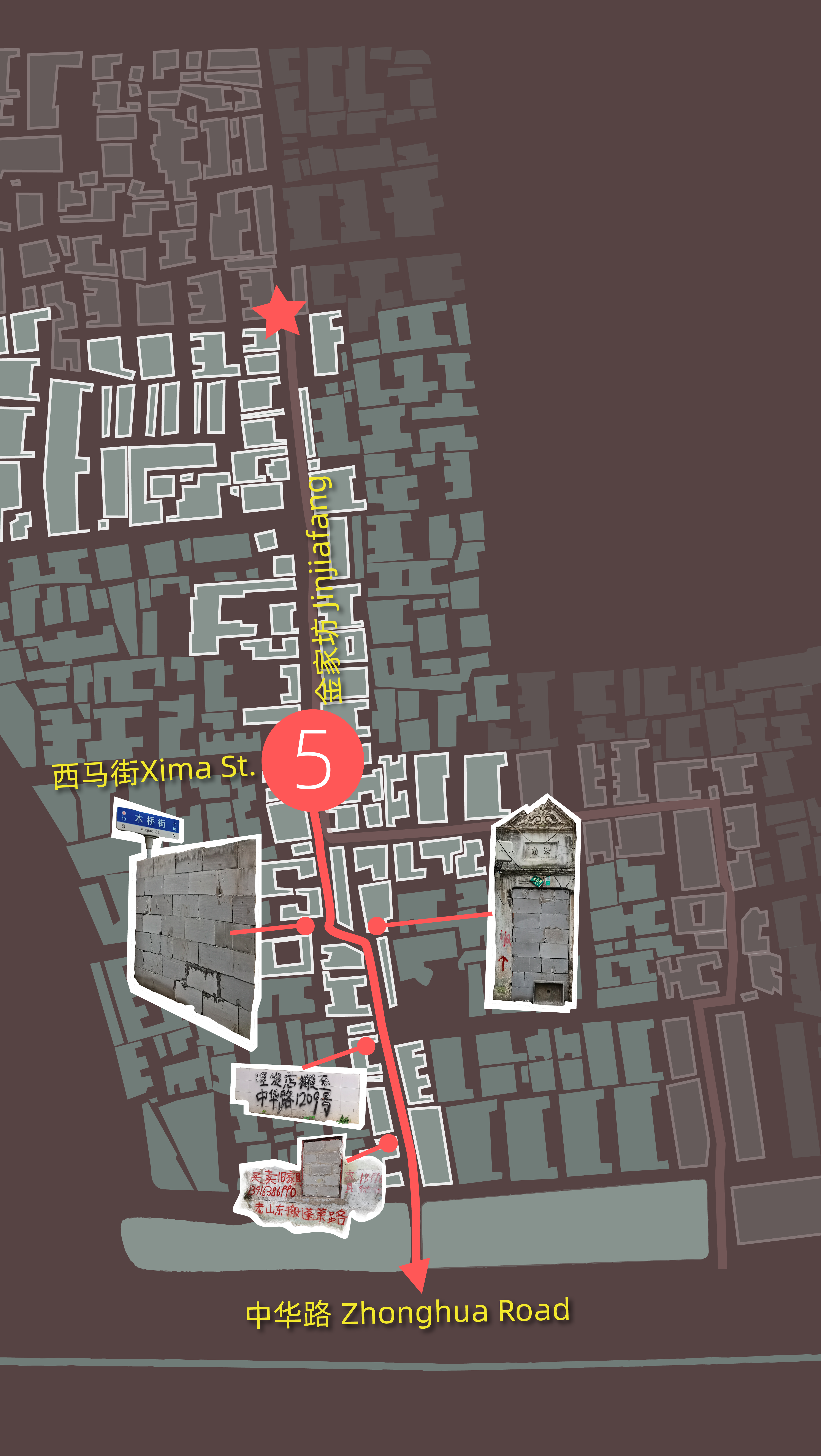


Sister & Brother:
Along the old city wall of Shanghai, there is a ring of gates, so-called old west gate (laoximen, where you are now), small west gate (xiaoximen), small north gate (xiaobeimen), new north gate (xinbeimen), old north gate (laoneimen), small east gate (xiaodongmen)… Inside the wall is the old town.
Sister & Brother:
The real estate owner rented out a lane, and the second landlord divided a house into several rooms to rent out. After liberation, the State Housing Management assigned the rooms, this is yours and the other is his. It just evolved like this.
F:
I think it is very interesting. At the very beginning, the house was built for the upper class, and generally for foreigners. Then there was a long period when the houses were in the hands of the proletariat, that's how to say, tantamount to the redistribution of property, which brought many, many families together. Then gradually the houses seem to be back in the hands of the middle class, it seems that they just bought back the houses again.
Mother & Daughter:
The Jiangxiali we demolished is actually quite typical. It's a pity to demolish it. In fact, it should be preserved. Is it like Xintiandi? The building is a very standard Shikumen house. Shanghai is progressing so fast that it doesn't seem to matter that it is completely demolished. There are not many such typical Shikumen. However, Shikumen can no longer meet the requirements of modern people for home furnishings. The renovation should be very good. I think living in the renovated Shikumen is definitely better than living in a new commercial house. This house is pretty good. We thought it was a delusion before. My son said, "If I have the conditions in the future, I will buy an entire Shikumen house."
F:
As I said, the current policy is to encourage the integration of Shikumen. That is, I bought the first, second, and third floors from three different people, and I can apply for a combined household registration and replace the three household registration books with one. But if you buy a building, you can’t sell it to three people, that is, it cannot be demolished after it has been merged. So, I think the policy is secretly encouraging the merged house, even if the government does not directly sell it, demolish it or force household merger.
This is something that only you will know when you have actually visited the house. The government is actually gradually erasing this kind of social life. When we moved in, there was only one of us as a whole building, but now at least 5 of the 10 buildings have been merged.
Sister & Brother:
Now living conditions have improved, and hygiene has also improved. Before, you didn’t know how hard the life of the residents could be. Every household had a large basin and boiled water. Those who live upstairs took as much water up and down as much water as they took. This is how they wash in the bath. I also think...this is a contradiction. When we were together before, I didn’t feel bitter, but now I look at people who have bathrooms, kitchens, and gas stoves. Of course, I hope the government can improve our lives. In the past, yes, we took a bath every three or four days. When it was cold, men took a bath once a week, but we washed our feet every day. Now it’s different. We can’t sleep without washing every day. Now that life has improved, how should I say, the changes of each era.
Mother & Daughter:
The people living in the old houses are all assigned to the suburbs. After the demolition, they all moved to the countryside. All were separated, and we are basically out of touch now.
Sister & Brother:
Our primary and middle school gatherings are all in a lane. When we were relocating, we came to visit and said, "This is the place where I lived when I was a child." We took photos because we may not see the place anymore